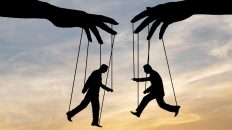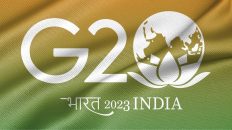Soon after the World War II, there was an attempt to recast the world order. There was widespread recognition that the old order had collapsed. If the world was not to re-experience the misery and the grief of the five years preceding the conclusion of the War the old order had to change.
The unfortunate truth of human existence is the gap between the realisation of the truth and the execution of the perceived solution. Preconceived notions, prejudices, egos, sheer inability to understand and worse come in the way. The post-World War II situation was not very different. The League of Nations was converted into the United Nations. Perhaps this was a semantic improvement from the world ‘league’ to the word ‘united’.
The contents however did not substantially change. The assumption of the working of the United Nations was simple. If the United Nations was to take any action the five permanent members of the Security Council had to agree. It was clear from the beginning that four of the five members would be USA, UK, France and Soviet Union. Clearly, it was following up the principle ‘The winner takes it all’. The Allied Powers had won and so the world belonged to them. The Axis Powers consisting mainly of Germany, Italy, and Japan had lost and Germany again had ‘lost its place in the sun’.
The fifth position was still open and in the immediate years following the setting up of United Nations as India was seen to be moving to Independent nationhood, the American President, in good time, offered the position to India. It is widely believed that the then Indian Prime Minister in his usual, ’bout of generosity’ felt that India should propose China, instead, for the fifth permanent seat of the Security Council. The jury is still out on whether this was a sound decision or totally misplaced magnanimity of a personality which wanted posterity to see him as ‘grand’.
China became a permanent member of the Security Council of United Nations and the last seven decades as a follow up of this decision speak for itself.
Along with United Nations several other bodies of the global world order related to United Nations and otherwise were also envisaged, created and launched.
One of them was UNESCO. UNESCO like many actions related to United Nations began with a grandiose enunciation. It enunciated that ‘wars begin in the minds of men therefore it must be eliminated in the minds of men’. There could be no two opinions on this lofty statement. How UNESCO rolled out is a story of the powerful in the world order, using purse strings to exercise control.
The dominance of the powers of United Nations was such, that operationally dissenting movements of various order, erupted at different points of the globe with different objectives. Amongst the most visible emergence of other power centres other than the permanent members of the Security Council, came in the early seventies. It took the form of West Asian communities asserting the ‘power of producing oil’. They could and did make the world order, for several decades, alter its co-ordinates. The OPEC countries did matter and they could dictate. That may be another story.
One thing that was clear is that United Nations power equations did not any more represent the realities of global power equations. Several years later after the birth of OPEC, Soviet Union as a sovereign entity collapsed. Of the successor nations, Russia succeeded to the seat which was for Soviet Union.
One thing that was clear was that the power equations, globally, were to be in a melting pot.What was forgotten while all this was going on, was the power of the mind or the assumption which launched UNESCO.
As UNESCO floundered in its impact making power, institutions like WHO, FAO and sundry others emerged on the scene. Each institution, in its own right, progressively became the boxing ring of global power equations. The response came in the form of various fora. Amongst the most talked of ones’ was the World Economic Forum. A great talking shop where the leaders in saddle and leaders to be, not always political, gathered in their quest for importance and visibility.
The results in the form of the present world order are there for all to see.
The need is obviously to go back to see and realise the ‘power of the mind’. It is a must to realise singly, in duality, collectively, amongst communities and nations,the need to give to each other the freedom to pursue their lights. This is unexceptionable so long as nobody was hurt and no one imposed dominance on another’s free choice.
Letting each other be, is a rare art. Acceptance of each other’s logic, weaknesses, strengths and need of spaces, can alone bring sanity to relationships.
Business or otherwise, this fundamental principle needs to be talked of, far more sincerely and actioned far more purposefully. That alone will pave the way for individual, collective and global rational world order–keeping power play where it belongs.

























